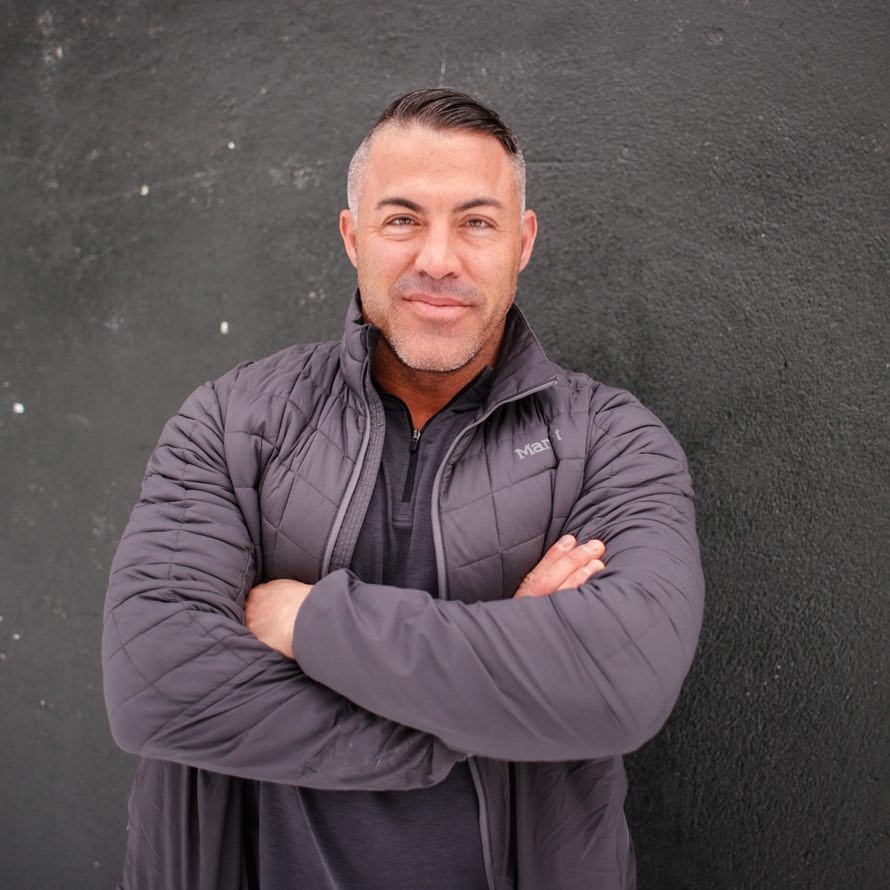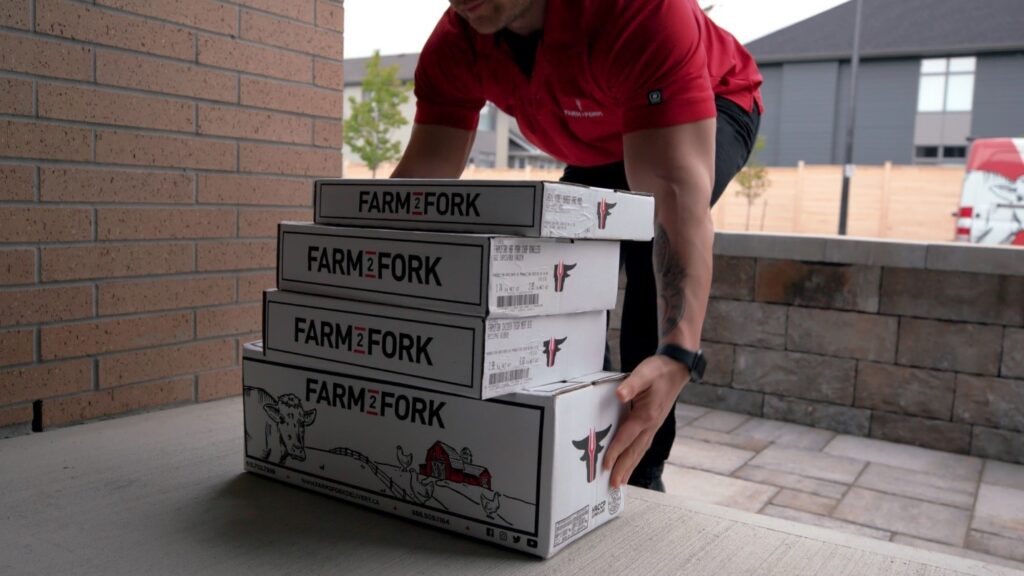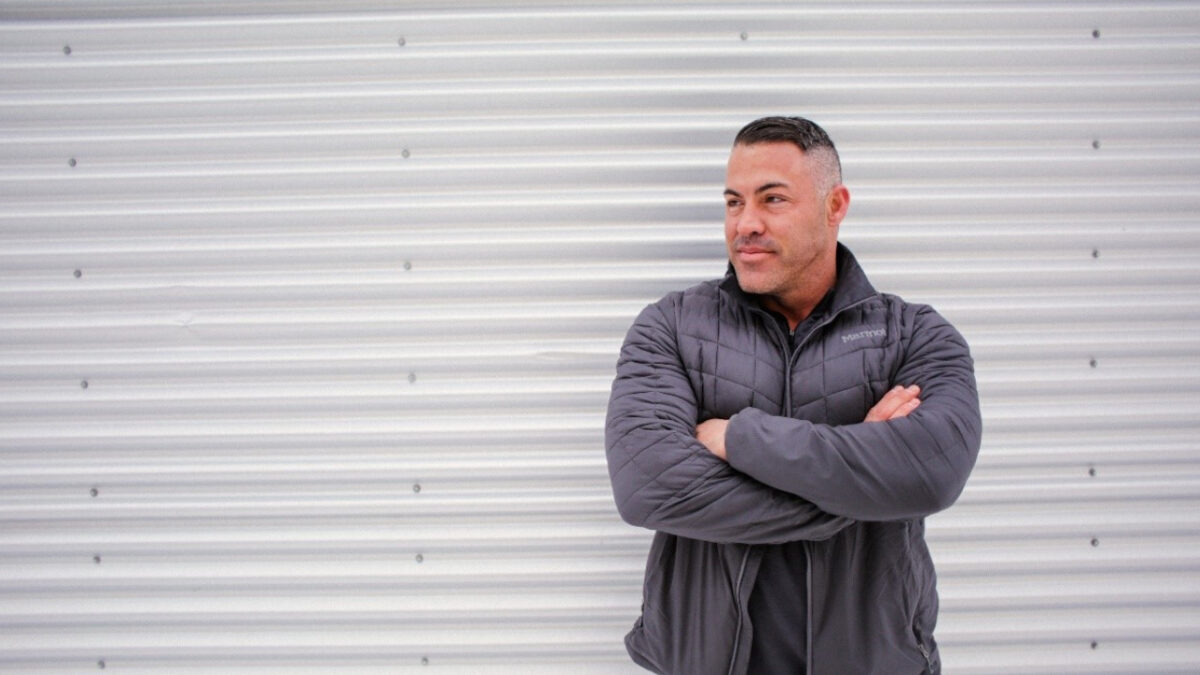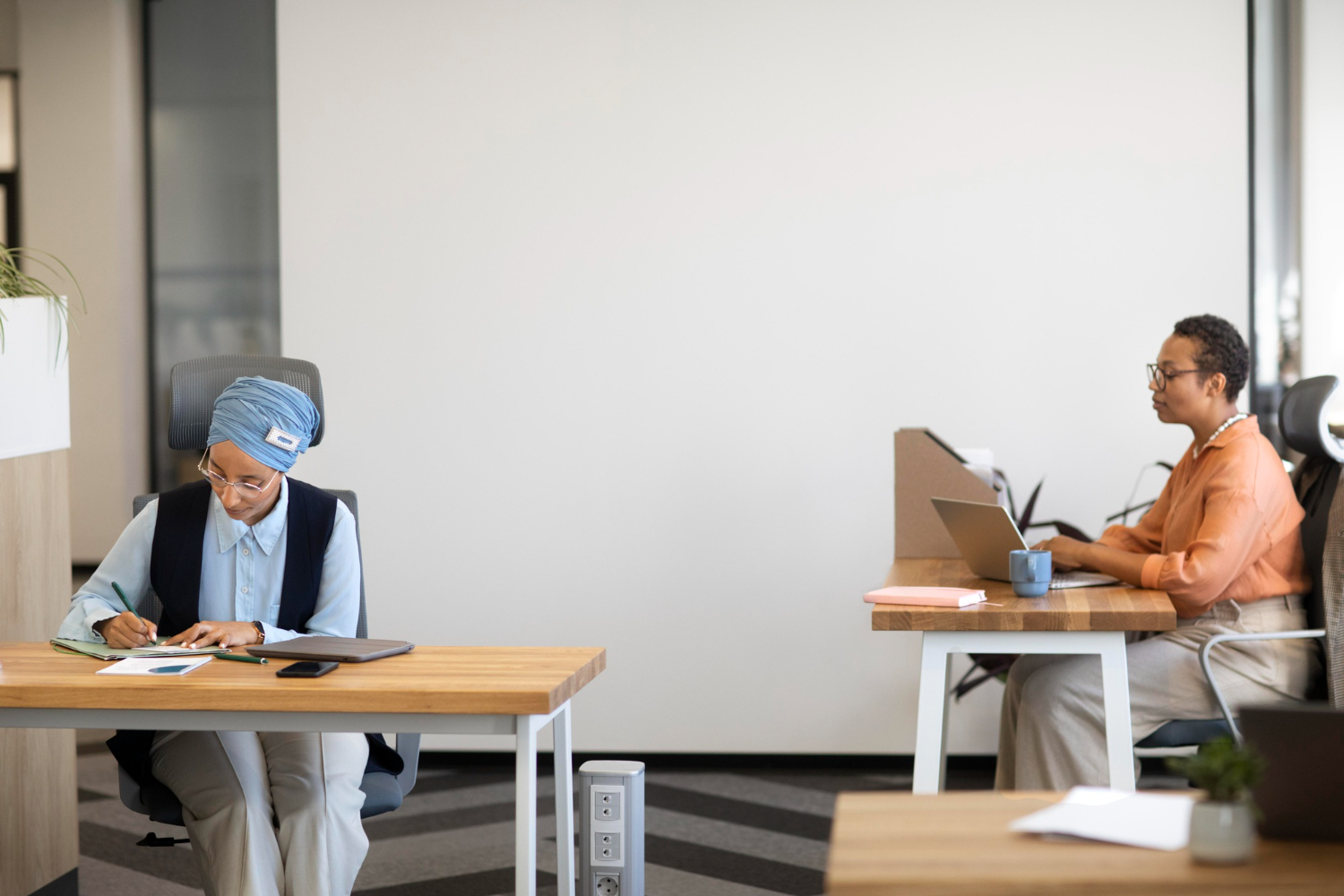Having spent a decade in the meat industry in the US, Jonnel Sloane had a fair idea of what he wanted to do after his move to Ottawa, Canada. With a very tight budget and the will to make it work no matter what, he launched Farm 2 Fork, a subscription-less meat delivery service that delivers bulk orders of meat, sourced from local producers in Canada who value sustainability and natural rearing practices. The model has worked very well so far in Ottawa, Montreal, and ten communities in Nunavut. Jonnel has already replicated it in Toronto, with hopes to continue in other Canadian cities too.
Read to find what he has to say about the success factors for his business, the challenges he has faced so far, the growth outlook of the enterprise, the entrepreneurial traits that allowed him to lead this venture, and his advice for those with entrepreneurial ambitions.
What would you say is Farm 2 Fork’s biggest driver of success as a meat delivery service?
I was driven to start this company because of my own experiences and the experiences of the people around me. I realized I wasn’t the only one who wanted to know exactly where my food was coming from. When I started the company, I realized that there was a need for transparency in the industry. When you went into stores, a lot of meat and seafood [ products ] didn’t provide a lot of transparency. What I mean by that is [they] didn’t have any value systems associated with it. Was it caught sustainably if it was seafood? The country origins aren’t really there [or] not determined correctly. A lot of times I find my opinion for meat and seafood [is whether] that product [was] raised without antibiotics. [Are] there no added hormones? Where was it grown? Where was it cut [or] slaughtered?
I always look at what the other companies are doing in the space, or just companies in general for e-commerce, and we try to be above the industry standard. I bring my own experience and knowledge to that too […] to continue to improve the customer experience because it’s all about the customer. We are a company that is bootstrapped. We’re not VC-funded and we’re not [a] publicly traded company. We rely heavily on consumer experience and retention for our customers and continue to build on that. We’re always trying to do [new] things like, for example, we just started accepting cryptocurrency, which I’m really excited about, on our website. I don’t think there’s too many ecommerce businesses doing that right now, especially not in Canada. And we’re also experimenting with NFTs.

What are the kinds of challenges that you have faced in the meat and e-commerce industries?
In the meat industry, the biggest challenge has been government regulations. Obviously, the intent behind so many of these regulations is good—they are meant to protect the consumer. But there has been very little change in these regulations over the years, so what they now actually do is stifle innovation, raise costs for businesses (and therefore the consumer), and limit consumer choice. But the pandemic has really highlighted a lot of the issues with some of these regulations, so I know that there is going to be changes happening for the better.
In terms of e-commerce, for us, one of the big challenges has been trust, especially with something like—well, I’d say all online shopping—meat. Consumers have been reluctant to try to trust smaller, online-only retailers up until this point. The pandemic has really changed consumer thinking and behavior on this. It’s forced people to have to look online and change their behavior and get out of their comfort zone. They’ve started [to] seek out online retailers now, and, specifically for us, we focus on asking customers to leave honest reviews. What it does is it just helps the industry as a whole to get a really good feedback in a big area, whether it was delivery, it was the packaging, [or] it was the quality of the product. This helps us to continue to improve the customer experience.
How do you envision the future growth strategy for Farm 2 Fork?
Our business is structured in a way that makes [it] extremely replicable. We have an advantage in the industry because we do not rely on contracts or subscriptions. Everything from the online ordering experience to all the automation and the actual delivery can simply be duplicated in another area. And that’s exactly what we plan to do. We have already expanded into Toronto, and once we get more momentum there, we plan to scale into Edmonton, Calgary, and Vancouver.
I believe we have an advantage in the industry over other contract and subscription companies because we’re very cookie cutter. [If] you go on our website, it’s just a minimum order. It’s order as you go, no subscription, no contract, [and] all our products are set up in [a] certain format. When you’re going to build your cart, our minimum order is $249. You’re going to go to chicken breasts, you’re going to click on chicken breasts, you’re going to buy that one box [that] always comes with 10 chicken breast[s], so everything we do from our online ordering experience to all the automation, the actual delivery, can simply be duplicated in another area. For example, [in] Toronto, all I did is take what we already do, build it out what we did in Ottawa, build a replicated site and other subdomain, [and partnered with] companies handling operations, [which] we’ve integrated them into our system.
You moved to Canada from the US with limited resources and just the idea of what you wanted to do here before finding success. How has the move impacted your personal development? What advice do you have for others with entrepreneurial ambitions and limited resources?
Basically, it forced me to be very decisive. I was either gonna sink or swim. There was really no option for me. When I got here, […] we lived in my niece’s basement. We had $2,000 to our name. I wasn’t able to live here legally at the time because I was a US citizen. My wife is Canadian [and] my son’s got dual [nationality] [but] I had to go back and work in the same industry. I was in a direct sales position [that involved travelling to] the US for three years. I had in mind what I was going to do, which I already [had] been doing in the same field; I was just gonna replicate that here. I just took chances and I had blind faith. Was there a lot of fear that happened in between there? […] It was terrifying!
With limited resources, you don’t have the luxury to see where things are gonna go, so you have to make it work right away. That means changing a lot of times from your original plan and pivoting. Entrepreneurs in general are very resourceful. I don’t want to sound pretentious, I’m very fortunate. What we did [was] we put some things in place, [then we] kind of branched out from there and continue to pull back, and then we start growing again, and we pull back a certain area, once that’s grown. It’s like pruning a tree almost. A tree starts to grow, and you put it back a little bit, and then it grows again in that area, and then you cut off the branches or leaves that are not growing.

What qualities do you think have enabled you to become a strong entrepreneur?
I never want to be the smartest guy in the room. Like I feel that has to do with ego and I think you constantly have to learn to surround yourself with people that are smarter [than] you and challenge you. And if I feel good, that’d be that ego—[being]the smartest guy in the room. But it won’t help you develop. It just helps you become stagnant as a person, as an entrepreneur.
Even as a father, a husband, family [man], everything, you can apply that formula to anything. And I’m never afraid looking or sounding stupid. If I have an idea or question, I put it forward. Even if it gets shot down or I don’t know what I’m talking about, I learned from it. I’m not afraid to take chances.
I have some other projects that I want to work on that are in the crypto space and I absolutely know I have an idea what I want to do, but I absolutely know nothing about that. But I’m going to start connecting the dots […] The one thing I am good [at] is networking and getting in front of people and getting conversations going. And I constantly learned from that and [built] on that to put that together to be able to put together [an] outline to help me facilitate what I want to do.
How important has having a reliable team and good leadership been for Farm 2 Fork’s success?
I took a non-traditional approach when building my team. I didn’t hire employees in-house. I looked for other businesses that had strengths where I had weaknesses and contracted out to them. Specifically, I have worked with Venture Creative Collective (VCC) to do the marketing, automation, and website elements. That way, I can focus completely on the day-to-day running of the business, the “meat and potatoes.” I can do that part my way. But I trust them to do their part successfully too, because it is mutually beneficial for Farm 2 Fork to grow, more so than it would be with an in-house team. It isn’t just a contractor–client relationship anymore—there is a lot of trust between us, a lot of loyalty. That means that I can go to them with ideas, and I can rely on them to make it happen. And I trust their judgement, so when they tell me that there is a better, easier, more efficient way to do something that will result in a higher ROI, we tend to do it that way. My team might be non-traditional, but it’s worked exceptionally well.
Arslan Ahmed | Staff Writer




















